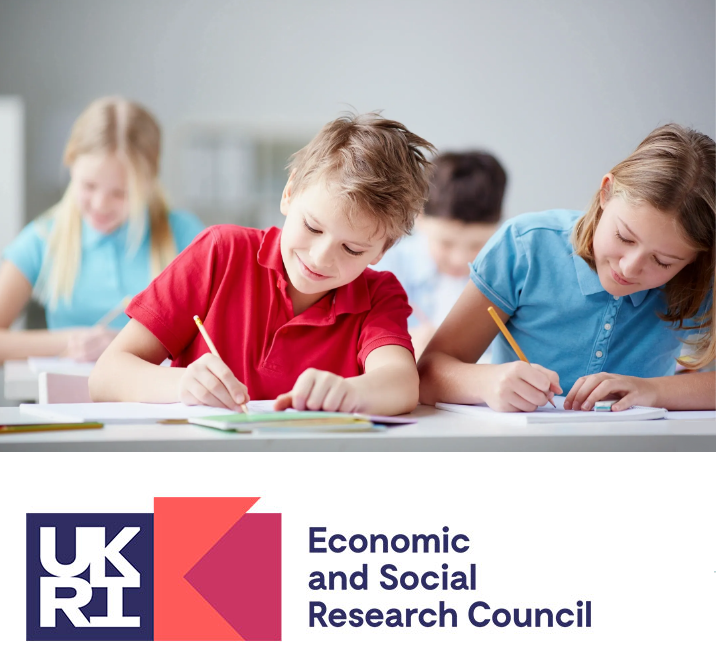
The Self Lab is a research group based at Abertay University and the University of Dundee, working on self-processing biases in children and adults.
Our primary focus is an ESRC-funded project exploring the educational applications of self-reference effects.
Additional projects include examining the early development of self, the effects of self-cues on attention and working memory, and the impact of clinical disorders on self-processing.
Lab Group
ESRC project: Applying the self in education
Our research shows that self-referencing can be harnessed to support learning and education, work that is now part of an ambitious UKRI-funded project.
We are also using this project as a platform to develop CPD and resources for teachers and educators.

Self-referencing projects

Self-cues in numeracy and literacy
Most of our work with children is currently focused on school-based tasks, in a project is funded by ESRC. The project is designed to explore the effects of self-cues such as personal pronouns on children’s information processing. In particular, we are testing the effects of self-cues on numeracy (e.g., text-based problem-solving) and literacy (e.g., close reading) tasks.

Development of self
We are assessing the development of self-processing biases in memory in children and adolescents, and the relationships between self-processing and other aspects of social and cognition development. This project was partly funded by the Leverhulme Trust, and collaborators include Dr Jacqui Hutchison (University of Aberdeen) and Dr Ada Kritikos (University of Queensland, Australia)

Effects of self-cues on cognition
We are studying the effects of self-cues on attention and working memory, and how these effects might link to information processing. This work is the subject of a Zahra Ahmed’s PhD as well as a collaboration with Dr Kevin Allan (University of Aberdeen), with whom we are developing game-based working memory tasks with self-referent avatars.

Self in developmental disorders
Self-processing can vary across individuals, and particularly in children who are diagnosed with developmental disorders such as autism and ADHD. In collaboration with Dr Karri Gillespie Smith and Dr Sinead Rhodes (Edinburgh University), we are examining the extent and nature of these variations.
>>>News<<<
[April 2024] New paper on self in ADHD accepted for publication – congratulations to Zahra Ahmed on leading the successful submission of our paper on the self-reference effect in ADHD for publication in the British Journal of Developmental Psychology, where it is now in press!
[March 2024] Paper on self-reference effects across the lifespan now in press – our new paper (led by PhD student Tessa Clarkson) ‘Mine for life: Charting ownership effects in memory from adolescence to old age’ is now in press at the Quarterly Journal of Experimental Psychology – we will post the link as soon as it becomes available!
[Jan 2024] ESRC paper published – Our paper of self-processing biases in numerical problem solving ( ‘Put you in the problem: Effects of self-pronouns on mathematical problem-solving) is now published in the Quarterly Journal of Experimental Psychology.
[August 2024] Congratulations to Self lab member Zahra Ahmed, who has secured a competitive Higher Psychology Assistant post at Tees Valley Care!
[June 2023] Grant funding awarded – we are delighted to have been awarded three years’ funding by the Leverhulme Trust, to study the effects on cognition of self cues presented in bilinguals’ first and second language, with Josephine Ross as PI. An associated Post-doc position will be advertised later this year, to be based at the University of Dundee.
[May 2023] ESRC project completed While there are still findings to publish, we have now completed our three-year ESRC project on time and on budget, which is a fantastic accomplishment given the challenges associated with conducting educational research during long periods of COVID-related school restrictions. Huge thank you and well done to all the team, and all the schools who continued to support our research!
[April 2023] NEW PAPER ALERT! Our paper ‘Put you in the problem: Effects of self-pronouns on mathematical problem-solving has been accepted for publication in the Quarterly Journal of Experimental Psychology. The paper can be accessed here.
[Jan 2023] Congratulations to lab member Dr Josephine Ross, recently promoted to Reader in Psychology at the University of Dundee!
[Dec 2022] Welcome to new full time lab member Zahra Ahmed, who joins us as a Research Fellow following the recent submission of her PhD on self processing biases in working memory.
[Oct 2022] New paper accepted: We are delighted that our paper with University of Queensland collaborators exploring the impact of contextual cues on self-reference effects in memory has been accepted for publication in Consciousness and Cognition. Congratulations to first author Tessa Clarkson!
[Sept 2022] BPS Developmental Section Annual Meeting: Josephine and Zahra both gave excellent talks at the BPS developmental section conference in Sheffield, disseminating their research on the development of the self-concept and autobiographical memory, and the the effects of self-cues on numerical processing respectively.
{Aug 2022] Congratulations to outgoing Research Fellow Joshua March, who will take up a new position at the University of Strathclyde next month.
[June 2022] Education focus groups: We are running focus groups with teachers this month, looking at how our materials might fit with current curriculum. Please get in touch by email if you would like to be part of this!
[April 2022] Conference presentation at CDS: Karen Golden presented a fantastic poster at the annual conference of the Cognitive Developmental Society in Wisconsin, US, on the Effects of personal pronouns on children’s numerical problem solving’.
[Feb 2022] New paper on self-processing biases in attention: Our paper comparing the attentional biases associated with self cues, threat cues and cues relating to current goals has been published in the Journal of Experimental Psychology: Human Perception and Performance. Early online view available here.






